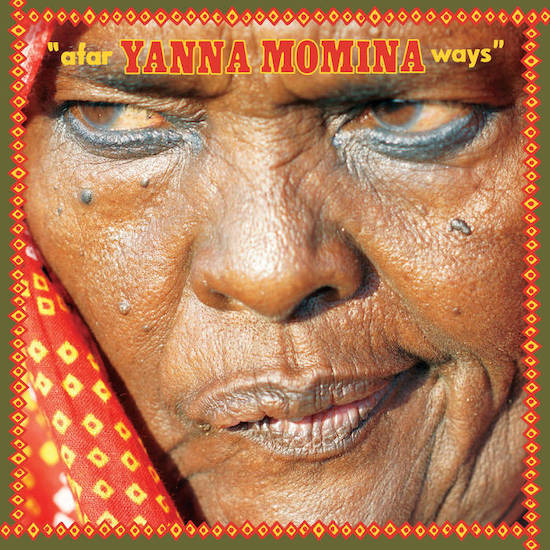Yanna Momina’s voice contains the power to silence those in the room. It’s at its peak here on the devastatingly titled ‘My Family Won’t Let Me Marry The Man I Love (I Am Forced To Wed My Uncle)’. Momina sings completely unaccompanied, dejection rife in her voice. It reminds me of the yelping vocal style of pansori, a form of traditional Korean music drama. The success of the vocalist, it is said, depends on the singer’s innate understanding of han, loosely defined by intergenerational trauma specific to Korea. There is a similar weightiness to Momina’s voice as she lets out two ululating, echoing cries. It’s a reminder of Djibouti’s own troubled history of violence against women, where forced marriages can occasionally occur in rural areas.
Born in 1948, Momina is a member of the Afar people, Djibouti’s second-largest ethnic group. Spread throughout the Horn of Africa, much of their music remains undocumented. For Glitterbeat’s ‘Hidden Musics’ series, producer Ian Brennan travelled to Djibouti in 2018 to record Afar Ways in a swaying stilt-hut. What is most impressive about the album is Momina’s ability to provoke such pellucid emotional responses with an uncompromising personal style.
Unusually for Afar women, Momina composes her own songs. As a result, the album toes the line between voyeuristic field recording and intimately personal album. On the title track, Momina quivers, reciting and repeating verses like a prophet overcome by holy power. She’s answered by her disciples, friends gathered in the hut. Her melodies are melismatic and ribbon-like (perhaps due to Arabic influences in the Horn of Africa), and Momina’s unique phrasing approaches atonality, as it often refuses to rest on any definite notes.
This delicate balance between the individual and the community continues on ‘The Donkey Doesn’t Listen’. It sounds like an age-old folktale that Momina is passing down – she even chuckles as she sings. There’s a distinct playfulness to ‘The Donkey’, with its light handclaps and mumbled, almost beatboxed bass. Afar Ways is excellently engineered to show off Momina’s voice against the sparse instrumental backing: just Momina’s own bracelets, a matchbox, and a calabash.
With such minimal instrumentation, Momina delivers a body of work decipherable only through feeling. Afar Ways reminds us that empathy is a difficult thing to invoke, especially in an era where forms of personal authenticity achieved through the economic exploitation of consumers is standard practice. But empathy is essential to understanding Momina’s music. Coupled with Brennan’s masterful engineering, Afar Ways proves to be another success for Glitterbeat.


